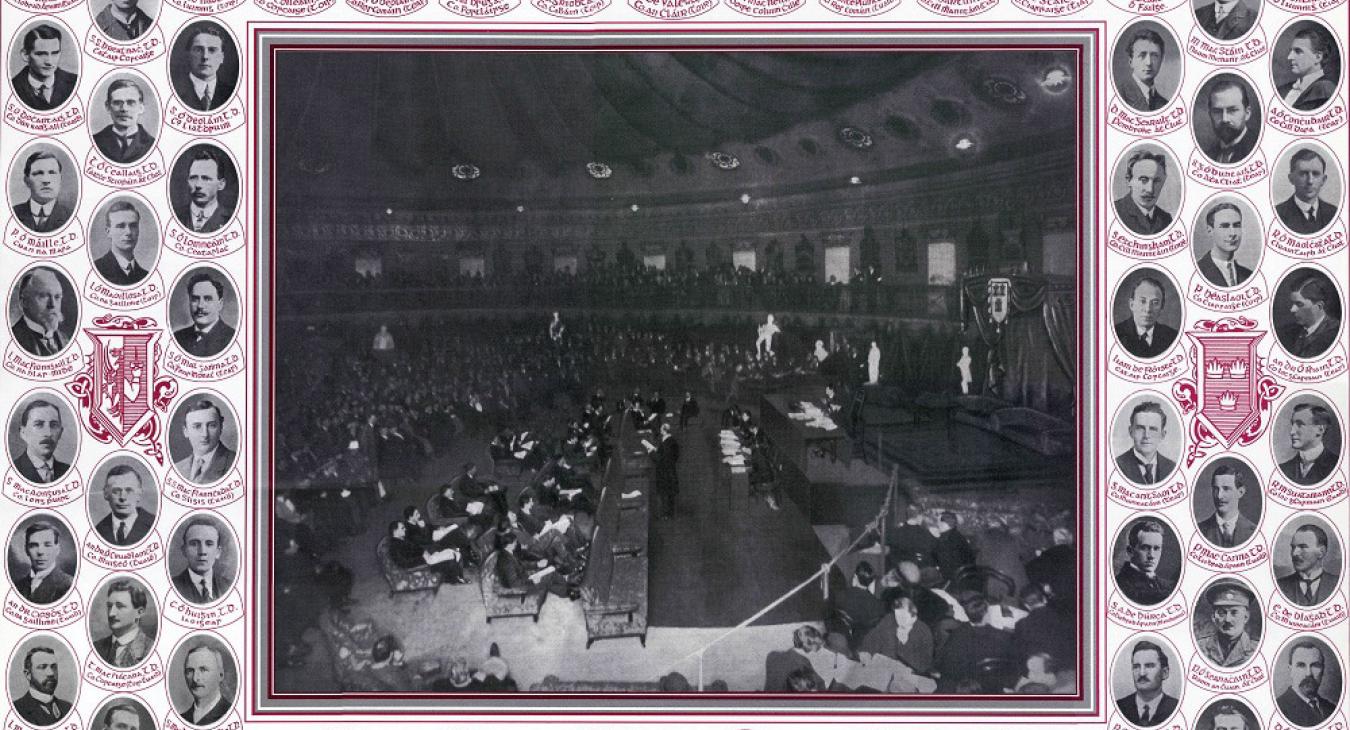There has been a lot of discussion about why the Irish Labour Party and Trade Union Congress (ILP&TUC) did not contest the 1918 election but the facts are that it was neither organisationally or politically developed enough to do so. Sinn Fein did offer to give labour candidates a clear run in several constituencies on the basis that they would abstain from Westminster and join what would become the First Dail. The Labour leadership declined the offer rather than split the Congress because it was clear that Belfast Labour would be fielding their own candidates and, if they won any seats at Westminster, they were certainly going to take them.
The price of unity was to play second fiddle to nationalism in the South and Unionism in the North. On the other hand, if Labour had run candidates there is no guarantee they would have won any seats. In Belfast they secured a respectable 12,000 votes but were defeated by Ulster Unionist Labour candidates who won 20,000 votes in every constituency they contested.
Thomas Johnson, who was secretary of the ILP&TUC, drafted the original of what would become the Democratic Programme of the First Dail, assisted by William O"Brien and Cathal O'shannon, both senior officers of the Irish Transport and General Workers Union and probably, at this time, members of the Irish Republican Brotherhood. It was adopted by the First Dail when it convened on January 21st, 1919, but only with drastic excisions at the insistence of yet more IRB members, including Michael Collins, Harry Boland and Sean T Ó Ceallaigh.
Although Johnson based the original text closely on the writings of Patrick H Pearse, Pearse's ideas proved too revolutionary for Sinn Fein. The opening declaration that "no private right to property is good against the public right of the nation" was watered down to an affirmation 'that all right to private property must be subordinated to the public right and welfare". Worse was to follow.
The next section declaring that 'the nation in the exercise of its sovereignty may entrust its soil and its resources, its wealth and wealth producing processes to the care and charge of any of its citizens, to use and exploit for the nation's enrichment, on such terms and on such conditions as may be determined by the whole people, so the nation must ever retain the right and power to resume possession of such soil or such wealth whenever the trust is abused or the trustee fails to give faithful service", was deleted.
Instead the Sinn Fein deputies adopted the following anodyne text: "We declare that we desire our country to be ruled in accordance with the principles of Liberty, Equality, and Justice for all, which alone can secure permanence of Government in the willing adhesion of the people".
The best known and most quoted paragraph is that accepting that it shall "be the first duty of the Government of the Republic to make provision for the physical, mental and spiritual well-being of the children, to ensure that no child shall endure hunger or cold from lack of food, clothing or shelter, that all shall be provided with amply means and facilities requisite for the education and training of free citizens of a free Gaelic nation." However even this was amended with the deletion of the last sentence, which was 'to encourage by every reasonable means the most capable, sympathetic men and women to devote their talents to the education of the young". One suspects that the new government did not want to divert such men and women from their patriotic duty to fight against British rule.
More deletions followed of which the most significant was the call on the "Government to encourage the organisation of people into trade unions and co-operative societies with a view to the control and administration of the industries by the workers engaged in the industries". Finally, it proposed that, 'the Republic will aim at the elimination of the class in society which lives upon the wealth produced by the workers of the nation but give no useful service in return, and in the process of accomplishment will bring freedom to all who have hitherto been caught in the toils of economic servitude."
Historians frequently ignore a major insertion into the Democratic Programme that, superficially, appears very progressive. This is a recognition of 'the necessity of abolishing the present odious, degrading and foreign Poor Law System, substituting therefore a sympathetic native scheme for the care of the Nation's aged and infirm, who shall not be regarded as a burden, but rather entitled to the Nation's gratitude and consideration. Likewise, it shall be the duty of the Republic to take such measures as will safeguard the health of the people and ensure the physical as well as the moral well-being of the Nation".
In fact, when Sinn Fein dominated local authorities declared their allegiance to Dail Eireann after the 1920 elections this clause was used to dismantle much of the Poor Law system, closing down or amalgamating workhouses and infirmaries, discharging inmates, refusing new admissions, cutting staffing levels, wages, food and other expenditure. The "work shy" were told to get the emigrant boat and "fallen women" were handed over to religious orders. The resulting cuts were welcomed by tax and ratepayers as another victory on the road to independence.
It was all a far cry from what the signatories of the 1916 Proclamation had envisaged, and yet, if the Democratic Programme of the First Dail remains the most socially progressive document ever adopted by a democratically elected Irish government we have Johnson, O"Brien and O'shannon to thank.
Padraig Yeates Author and Historian

